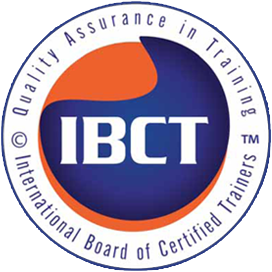Twelve Ways to Evaluate Your Trainees | An Infographic

Importance of Training Evaluation
Training evaluation is critical! It reveals insight into four angles. They include:
- How well the training program addressed the trainee’s training needs and objectives.
- What knowledge, skills, and attitudes the training program imparted to trainees.
- What desirable change it has brought in the learners’ performance.
- What organizational objectives have been achieved after the training conduction?
In any case, sadly, in the present organizations, this system of training evaluation is hard to come by. Organizations are unwilling to spend their assets for a thorough after- training evaluation. They just end their training programs by asking their trainees about their satisfaction level regarding the training. However, these organizations should understand that it won’t work like that. It won’t make their training programs powerful and yield the outcomes they look for.
Undesirable Consequences
In this case, organizations should confront the accompanying unwanted outcomes:
- Lack of application of the KSA by their human resources in their workplaces
- Failure of measuring an accurate ROI
- Failure of making their future training programs contextual
Therefore in this blog article, IBCT is going to reveal some of its methods of how to effectively evaluate your trainees.
How Do IBCT Trainers Evaluate Their Trainees?
In the following few lines, we will summarize 12 methods that are commonly used by IBCT certified trainers to evaluate the learning of their trainees.
Case Studies
IBCT trainers may use a case study to evaluate the level of insight and problem-solving capacity of their trainees.
Observation
IBCT trainers use observation of the behavior of their trainees during role plays or simulation games and compare their behavior against the desired standard behavior.
Discussion
IBCT trainers may start a teaching-learning conversation with trainees to evaluate the level of comprehension of trainees during the training sessions.
Quizzes
IBCT trainers may use quizzes as an entertaining way to test the knowledge of the trainees at the beginning, during or at the end of the training.
Games
IBCT trainers may use games to test the skills of trainees. Observation will provide the trainer with the level of skills performance.
Tests
IBCT trainers may ask trainees to make a written test to evaluate their knowledge.
Presentation
IBCT trainers would give presentation assignments to trainees to evaluate their comprehension and/or summarize the learning results.
Peer Feedback
IBCT trainers could ask peers to evaluate their fellow trainees and provide feedback on their performance as a part of the training. The trainer will provide a grade on the peer feedback to secure the quality of the feedback.
One Sentence Summary
IBCT trainers ask trainees sometimes to summarize a part of the training in one sentence to evaluate and to train them to give concise and to the point answers.
Posters
IBCT trainers give once in while assignments to trainees to make posters to summarize the learning moments and present it to the group.
Written Reports
IBCT trainers are using assignments like reflection reports to encourage trainees to reflect and summarize the learning yield of a training.
Video Blogs
IBCT trainers may ask trainees to make a video blog of the learning results of a training session and evaluate the training program.
Check the following infographic we produced to be easily used to remind you of such methods.



If you need a high-resolution PDF copy of this infographic, please type “send” in the comments section below.
Kindly send!
Please check your email. Thank you for your interest.
Kindly Send
Please check your email.
please send
Hi there, all is going fine here and ofcourse every
one is sharing data, that’s actually fine, keep up writing.
This infographic is still available for whoever wants us to send.
send